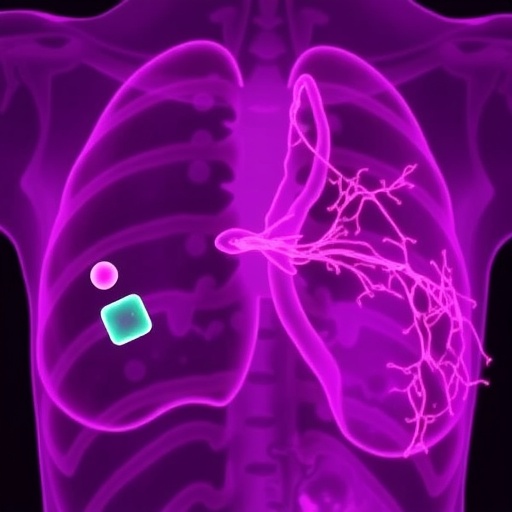In a groundbreaking study recently published in the Annals of Biomedical Engineering, researchers led by S.R. Henriques and colleagues have unveiled an innovative approach to combat breast cancer by utilizing locally administered, cytokine-loaded injectable cryogels. This research is crucial as it proposes a method to effectively reprogram tumor-associated macrophages—cells that often facilitate cancer progression—back to a state that promotes anti-tumor immunity. This advancement in biomedical engineering could pave the way for a new therapeutic modality in the treatment of breast cancer and possibly other malignancies.
Breast cancer remains one of the leading causes of cancer-related mortality among women worldwide. Current treatments often face challenges, such as the tumor microenvironment that promotes immune evasion and tumor progression. Specifically, tumor-associated macrophages (TAMs) have been shown to play a dual role; while they can possess tumoricidal properties, they are often recruited by the tumor to support its growth and spread. The dynamics between these cells and their environment are crucial factors influencing patient outcomes, creating an urgent need for novel interventions that can effectively manipulate these interactions.
In their study, the team developed a cryogel-based delivery system specifically designed to localize high concentrations of cytokines at the tumor site. Cryogels, which are cross-linked polymer networks, have garnered attention due to their biocompatibility and ability to retain bioactive materials. The researchers were particularly focused on harnessing this technology for cancer therapy, as the cryogel matrix allows for sustained release of the cytokines, providing prolonged exposure to therapeutic agents directly at the tumor site.
The injectable nature of these cryogels holds significant advantages in clinical settings. It allows for minimally invasive administration, reducing patient discomfort and the potential for complications associated with surgical interventions. Upon injection, the cryogels establish a scaffold within the tumor, creating a microenvironment that can modulate local immune responses. This local therapy aims to enhance the activation and reprogramming of the TAMs, pushing them towards a phenotype that is more favorable for fighting tumors.
The cytokine profile incorporated into the cryogels includes interleukins and growth factors known to stimulate the immune system. These agents serve as signals to recruit and activate various immune cells, counteracting the immunosuppressive environment often created by tumors. In preclinical models, the administration of cytokine-loaded cryogels has demonstrated a significant increase in immune cell infiltration within tumors, as well as enhanced tumor cell death and reduction in tumor growth.
One of the pivotal findings from this research was how the localized delivery of cytokines influenced not only the behavior of the TAMs but also other immune cells within the tumor microenvironment. The intricate interplay between different cell types in the immune response indicates that targeting a single cell type may not be sufficient. Therefore, the innovative composition of cytokines integrated within the cryogel scaffold was meticulously engineered to synergistically enhance the overall immune response, leading to improved therapeutic outcomes.
Additionally, this method’s versatility allows for customization based on individual patient profiles. As the field of personalized medicine advances, utilizing a cryogel system that can be tailored to incorporate specific cytokines relevant to an individual’s tumor profile could significantly increase the efficacy of cancer therapies. This adaptability is a notable advantage over conventional systemic treatments, which often lead to widespread side effects and may indiscriminately affect healthy tissues.
The researchers also highlight the significance of the bioengineering process in cryogel synthesis. Employing a combination of natural and synthetic polymer materials, they meticulously crafted the cryogel matrix to optimize its properties for drug delivery. The physical and chemical characteristics of the cryogels influence drug loading capacity, release kinetics, and cellular interactions, which are crucial for therapeutic effectiveness. This engineering aspect forms the backbone of the approach, allowing for a precision-targeted therapy directly at the tumor site.
Moreover, the research team conducted rigorous in vivo experiments to validate their findings before moving to clinical applications. These studies showcased how the delivery of cytokines via cryogels not only diminished tumor burden but also led to systemic immune activation, indicating potential for a comprehensive treatment that addresses both localized and systemic aspects of cancer.
While the results are promising, researchers acknowledge the complexities associated with transitioning this technology from bench to bedside. They emphasize the need for rigorous clinical trials to assess the safety, efficacy, and long-term outcomes of this localized cryogel delivery system in patients with breast cancer. As they move forward, a critical evaluation of dosage, formulation stability, and patient tolerance will be vital.
In conclusion, the study by Henriques et al. represents a significant advancement in the realm of cancer immunotherapy, paving the way for innovative strategies aimed at reprogramming tumor-associated macrophages through localized cryogel delivery of cytokines. This research not only highlights the potential to enhance anti-tumor immune responses but also illustrates the importance of interdisciplinary collaborations in bringing together biomedical engineering and cancer therapy. The future of such localized treatments holds promise for improving outcomes for breast cancer patients and potentially revolutionizing how we approach tumor immunology.
The implications of this research extend beyond breast cancer. By elucidating the mechanisms driving macrophage plasticity and immune cell activation, similar methodologies could be adapted for other forms of cancer, thereby broadening the scope of effective treatment modalities. The journey from laboratory discoveries to clinical applications can be fraught with challenges, but the potential benefits of cytokine-loaded cryogels could revolutionize therapeutic strategies, leading to enhanced quality of life and survival rates for patients battling cancer.
Subject of Research: Locally reprogramming tumor-associated macrophages with cytokine-loaded injectable cryogels for breast cancer.
Article Title: Correction: Locally Reprogramming Tumor-Associated Macrophages with Cytokine-Loaded Injectable Cryogels for Breast Cancer.
Article References: Henriques, S.R., Glass, E.B., Hoek, K.L. et al. Correction: Locally Reprogramming Tumor-Associated Macrophages with Cytokine-Loaded Injectable Cryogels for Breast Cancer. Ann Biomed Eng (2025). https://doi.org/10.1007/s10439-025-03844-6
Image Credits: AI Generated
DOI:
Keywords: Cytokines, Injectable Cryogels, Tumor-associated Macrophages, Breast Cancer, Immunotherapy, Biomedical Engineering.




